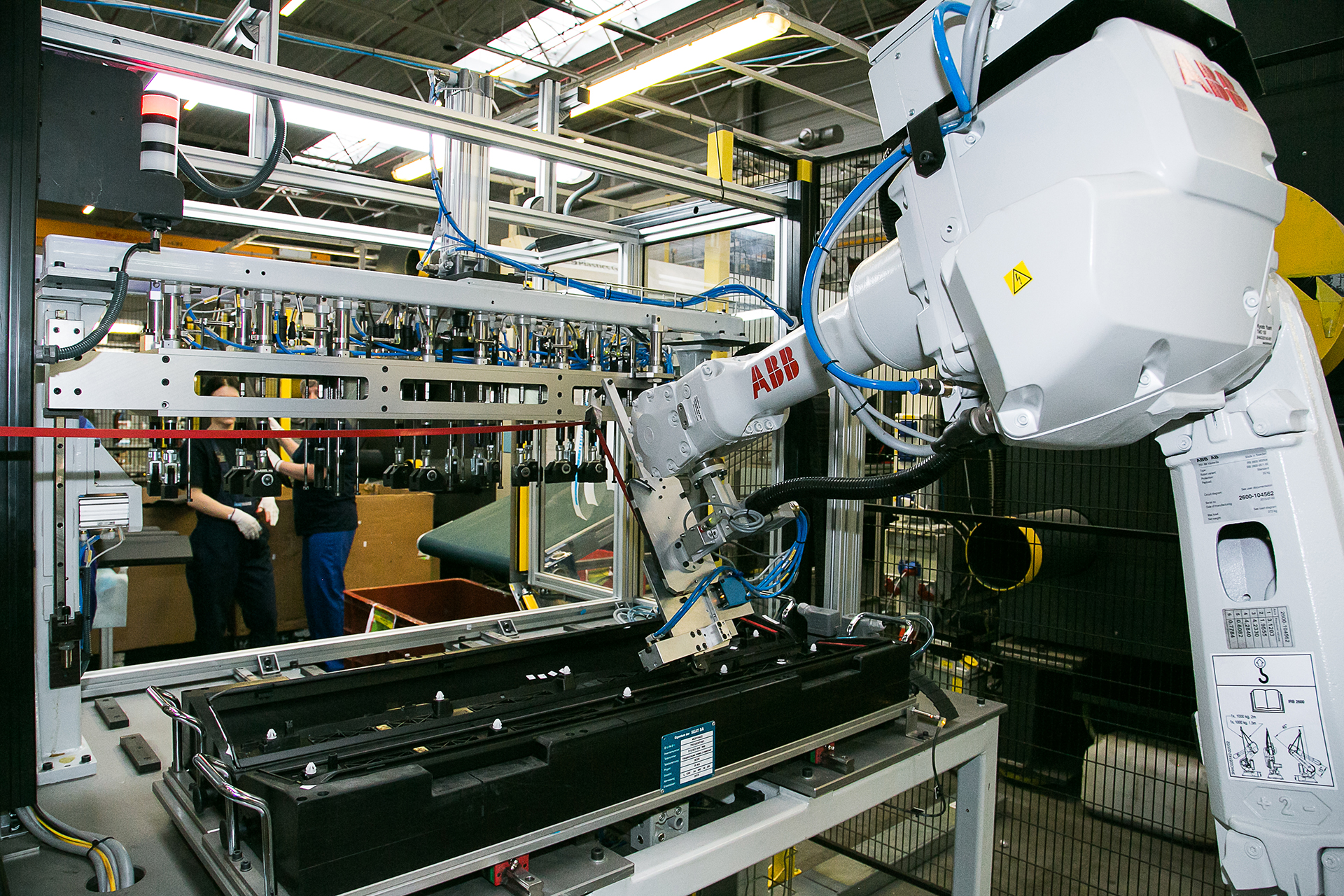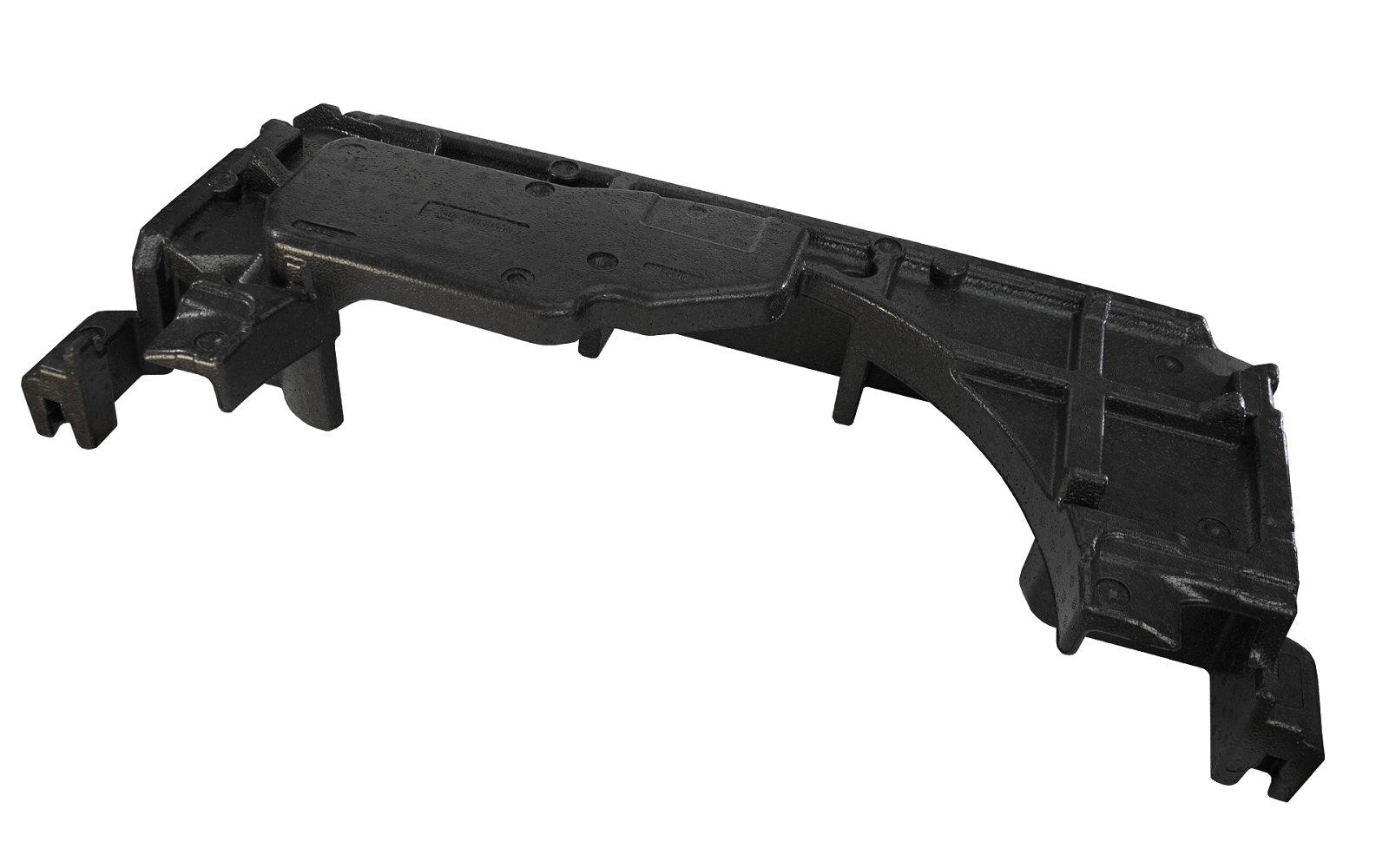Robotization is the process of automating production, which is increasingly important for companies in the automotive industry. The use of innovative robots in automobile production makes it possible to improve quality, reduce costs, increase productivity and speed up various processes.
What is an industrial robot?
Industrial robots are programmable mechanical devices that can perform a variety of tasks – from basic operations to the most complex ones. They are particularly useful for repetitive or hazardous operations, as well as activities that require maximum precision. This can include welding, cutting, packaging, or assembly of injected parts.
How do industrial robots work and how are they built?
Industrial robots are characterized by a rather complex structure. Most devices consist of a few key components, but depending on the specific type of manipulator and its purpose, there may be many more. One of the most important components of industrial robots is the frame, or base of the robot, which is mainly responsible for its stability and allows it to move along specific axes. Another important part is the robot arm manipulator. This is the main mechanism that must be designed to allow the device to move in three dimensions. The individual segments are articulated together.
The operation of industrial robots is based on the use of advanced sensors and a control system. The task of the sensors is to receive signals from the environment and identify products, while the control system is responsible for controlling the operation of the entire machine. Depending on the application, industrial robots can also be equipped with specialized tools or so-called end effectors.
How are industrial robots used in the automotive industry?

Industrial robots play a key role in the automotive industry. They are an integral part of the automotive manufacturing process. The most important applications of robots include welding metal parts, assembling components, painting car bodies and performing operations within the injection molding process.
At Knauf Industries sites various processes use five- and six-axis articulated robots, which have the ability to move in several planes while performing numerous plastics-processig activities. The biggest advantage of such robots is the ability to position the effector in any orientation, which significantly increases the range of the device's capabilities. As a result, it can be used during product assembly and handling, machining and even transportation.
Industry 4.0 – robots as the basis of automation
The growth in the use of industrial robots is closely linked to the development of technology and the increasing automation of various processes. They are of great importance especially in the context of data exchange within the framework of solutions such as IoT, Industry 4.0 and Purchasing 4.0. These are areas of particular importance to Knauf Automotive – we constantly strive to observe trends and changing market dynamics in order to provide customers only with products of highest quality. This allows us to provide forward-looking innovations that any car factory of the future can apply.
The processes of designing and manufacturing cars are extremely complex. For this reason, engineers are constantly looking for ways to automate and streamline them as much as possible. Combining industrial robots along with other advanced solutions, such as CAE software in injection molding technology, is one of the most effective options that opens up many entirely new possibilities.
Robotization of car manufacturing
Many companies in the automotive sector are now moving in this direction. The dynamic development of manufacturing robotization in the automotive industry has been observed for many years, but has recently gained significant momentum. According to the latest data, the number of collaborative robots worldwide is increasing by 23% year on year, while the number of industrial robots is increasing by 5%. The main contributors to this high growth are the strategies of companies that focus on improving reliability and efficiency. Above all, increasing the speed of manufacturing and the overall quality of products is key.
The automotive industry currently represents one of the most robotized industries. In the course of mass production of automobiles, it is crucial to ensure the highest quality standards – a result of, among other things, very demanding safety standards. Achieving compliance with regulations is much easier with the use of advanced industrial robots, which ensure greater precision and safety of various processes.
Knauf Automotive – injection molded automotive components
The use of industrial robots in the automotive industry is of great importance. Nowadays, when the competitiveness in the market is huge, it is necessary to maintain the highest possible quality standards. Automation and robotization of production in the automotive industry is a guarantee of precision, reliability and efficient execution of various processes.

At Knauf Automotive, we use such solutions in many areas, including producing injection-molded automotive components. We are a trusted supplier of plastic parts. We supply EPP and EPS automotive components and have been in the automotive market for more than 20 years, working with the world's largest original equipment manufacturers (OEMs). We are thus able to offer professional support regardless of conditions.